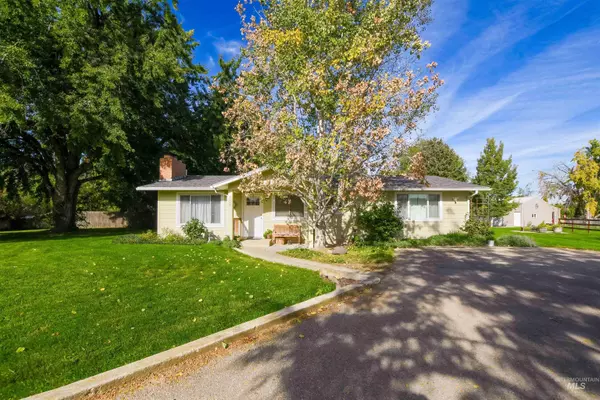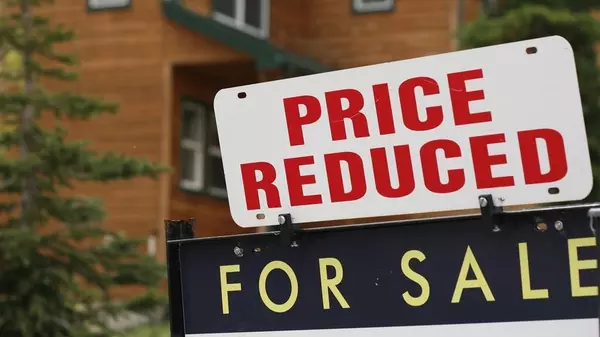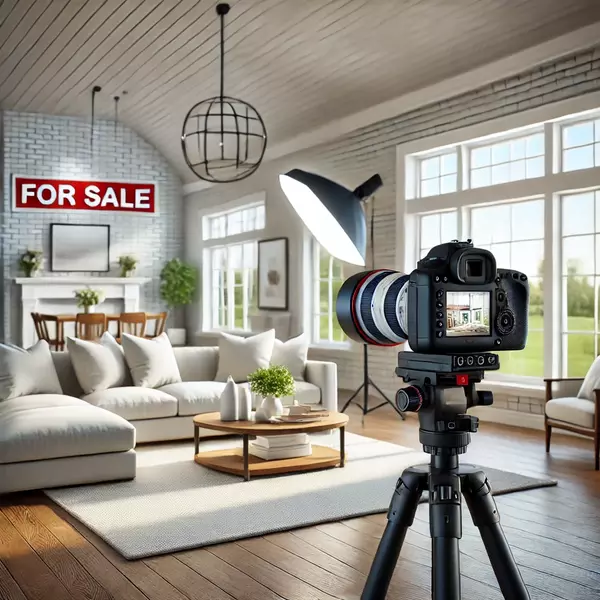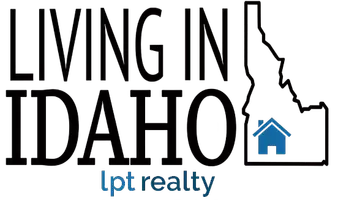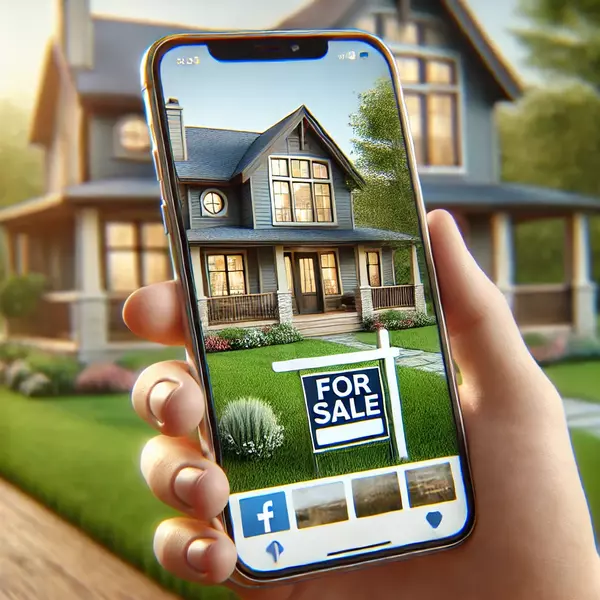
How to Use Social Media to Sell a Home Fast
How to Use Social Media to Sell a Home Fast Table of Contents Introduction Why Social Media Is a Game-Changer Top Social Media Platforms for Selling Homes How to Optimize Your Social Media Posts Using Paid Social Media Ads Best Practices for Engaging with Potential Buyers Final Thoughts FAQs Introduction Want to sell your home quickly and efficiently? Social media is your secret weapon. With millions of users across different platforms, it's one of the fastest and most cost-effective ways to market your property to a broad audience. Below, we'll dive into how to use social media to sell a home fast, including practical tips to ensure your posts get seen by the right buyers. Why Social Media Is a Game-Changer Social media has revolutionized how we communicate and consume information, and real estate is no exception. Here’s why: Broad Audience Reach: Platforms like Facebook and Instagram allow you to reach thousands of potential buyers with a single post. Cost-Effective Marketing: You can market your home for free or use low-cost paid ads to maximize visibility. Instant Engagement: Directly engage with interested buyers in real time, allowing for quick responses to inquiries. By leveraging the power of social media, your home can get in front of the right eyes at the right time, speeding up the selling process. Top Social Media Platforms for Selling Homes Not all social media platforms are created equal when it comes to selling a home. Here are the best ones to use: 1. Facebook Facebook’s massive user base makes it ideal for real estate marketing. Facebook Marketplace and local community groups can help you target buyers in your area. Plus, Facebook ads let you hyper-target specific demographics, like age, location, and income level. 2. Instagram Real estate is all about visuals, and Instagram’s image-heavy format is perfect for showcasing your home’s best features. Use Instagram Stories and Reels to create quick video tours or time-limited posts that create urgency. 3. Pinterest Pinterest allows users to search for and save inspiring content, making it a great platform for posting high-quality images of your home. Tagging your posts with real estate keywords and location can help them appear in search results. 4. YouTube If a picture is worth a thousand words, a video might just sell your home! Create virtual home tours and neighborhood guides, which potential buyers can watch at their convenience. Don’t forget to optimize your videos with keywords like "Boise homes for sale" or "Idaho real estate market." 5. TikTok If your home appeals to a younger demographic, TikTok’s video format can be an engaging way to reach first-time buyers. Create short, catchy videos showcasing your property’s highlights to capture attention quickly. How to Optimize Your Social Media Posts If you want to sell your home fast on social media, optimization is key. Follow these strategies to make sure your posts get seen and shared: High-Quality Photos and Videos: Invest in professional photography or stage your home to look its best. Visuals sell homes, so ensure your images are well-lit, clear, and showcase the property’s best features. Compelling Descriptions: Use actionable words like "Move-in ready" or "Must-see" to grab attention. Don't forget to include important details like the number of bedrooms, bathrooms, square footage, and key selling points. Use Hashtags: Hashtags can make or break your post’s visibility. Use hashtags like #BoiseRealEstate, #IdahoHomesForSale, and others relevant to your market. Post at Peak Times: Every platform has different peak times when your audience is most active. For instance, posting on Facebook and Instagram during the evening hours can boost engagement. Pro Tip: Share your listing on multiple platforms and include a link to the full listing on your website. Use this link to drive traffic to your listing: View homes for sale. Using Paid Social Media Ads Organic reach is great, but paid ads can boost your exposure dramatically. Here’s how to make the most of your ad budget: Facebook and Instagram Ads: Use Facebook’s ad manager to target potential buyers by location, interests, and even income. You can set a budget that works for you and monitor the performance of each ad. Boosted Posts: Take a popular post and pay to "boost" it, ensuring that it reaches more users who are likely to be interested in your home. YouTube Ads: If you have video content, YouTube ads allow you to target users searching for real estate listingsin your area. 98532q Best Practices for Engaging with Potential Buyers Once your social media posts gain traction, you'll likely get comments and messages from interested buyers. Here are some best practices for keeping them engaged: Respond Quickly: Buyers will appreciate a fast response. Be prepared to answer questions about the home, schedule showings, or provide more details. Host Virtual Tours: Hosting a virtual open house via Facebook Live or Instagram Live can provide a personal touch. Invite followers to ask questions and get a real-time feel for the home. Encourage Shares: The more your post is shared, the more people will see it. Offer incentives like a referral bonus for anyone who shares your post and refers the final buyer. By actively engaging with potential buyers, you can build interest and create momentum, leading to a faster sale. Final Thoughts Using social media to sell your home fast is all about maximizing visibility and engaging with your audience. With the right mix of high-quality content, optimized posts, and targeted ads, you can attract the right buyers quickly and efficiently. Whether you're selling a cozy starter home or a sprawling Idaho ranch, the power of social media is at your fingertips. Ready to sell your home fast? Check out our Instant Home Valuation tool to get started today! FAQs Which social media platform is the best for selling a home?Facebook and Instagram are the top platforms due to their broad reach and visual nature. Facebook’s local groups and Instagram’s Reels can significantly boost engagement. Can I really sell my home fast using just social media?Yes! By targeting the right audience and using engaging content, you can generate interest quickly, potentially leading to a faster sale than traditional methods. Do I need to pay for social media ads to sell my home?While you can sell your home without ads, paid ads can increase visibility and target specific buyer demographics, speeding up the process. How can I make my home listing stand out on social media?Use professional photos, engaging descriptions, and hashtags that match the interests of your target buyers. Post consistently and engage with followers to build momentum.

How to Prepare Your Home for a Quick Sale in a Hot Market
How to Prepare Your Home for a Quick Sale in a Hot Market Selling your home in today’s competitive real estate market can be both exhilarating and challenging, especially when you’re aiming for a quick sale. With interest rates fluctuating and demand high, potential buyers are constantly looking for the best price. Whether you're considering working with a real estate agent, exploring cash offers through companies like Opendoor or Homevestors of America, or selling on your own, you'll need to make your property stand out. First impressions matter, and simple home improvements like upgrading your porch, fixing caulk around windows, or updating old furniture can instantly boost your home's market value and attract more attention. When preparing for a fast sale, addressing key issues ahead of time can make all the difference. A home inspection is essential to identify any potential concerns, such as water damage in the basement, chimney issues, or an aging air conditioning system. Buyers often look for homes in top condition, so taking care of any maintenance problems like a leaky downspout or freezing pipes will save time during negotiations. Additionally, organizing your home and reducing clutter by using self-storage for excess items can make your home appear more spacious, while keeping it neat and ready for showings. Marketing is another crucial aspect to consider if you're looking for a quick sale. Listing your home on the Multiple Listing Service (MLS), and ensuring you have professional photography and even a virtual tour, will broaden your reach. If you're in a rush, cash buyers, including iBuyers and companies that "buy ugly houses", can often provide an instant cash offer, enabling a quick house sale with fewer contingencies. However, make sure to compare offers and fees carefully, as real estate agents can often negotiate higher prices. Whether you choose a cash home buyer or a traditional sale, understanding the real estate market trends and preparing your home properly will help you achieve a fast and profitable sale. Click here to visite our website Maximize Curb Appeal First impressions are crucial when selling real estate, and curb appeal is often the key to attracting potential buyers. A well-maintained exterior can be the difference between someone driving by or stopping to take a closer look at your property. It's your home's first opportunity to make a lasting impact, and in a competitive real estate market, that initial impression can set the tone for the entire viewing experience. Simple upgrades like fresh landscaping, trimming trees, or planting seasonal flowers can immediately enhance your home's appearance. Additionally, giving your porch a thorough cleaning, adding new light fixtures, or applying a fresh coat of paint to your front door can make your home feel more inviting. These small improvements create a welcoming atmosphere that draws buyers in, encouraging them to explore further and setting the stage for a successful sale. Quick Tips for Enhancing Your Home’s Exterior: Lawn Care: Regularly mow the lawn, trim hedges, and prune trees to keep your yard looking neat. Add fresh mulch to garden beds and ensure the lawn mower is in good condition. Exterior Paint: A fresh coat of paint on your home’s exterior, especially the front door, can make a world of difference. Choose neutral shades that appeal to most buyers. Landscaping: A few well-placed plants or shrubs can soften the look of your yard. Incorporate colorful flowers and keep the soil well watered to make your yard pop. Porch and Patio: Ensure your porch and patio areas are clean and inviting. Add some fresh furniture or a ceiling fan to create a welcoming outdoor living space. Clean Windows: Sparkling windows not only improve aesthetics but also allow more natural light inside. Interior Home Improvements for a Fast Sale When selling your home in the competitive world of real estate, making a great first impression is essential, and that starts with curb appeal. Potential buyers often make snap judgments based on the exterior of a home, so it’s crucial to create a welcoming, well-maintained environment. Simple upgrades, like adding fresh caulk around windows and doors or painting the chimney, can make a big difference. Beyond aesthetics, maintaining functional systems like air conditioning, ensuring the attic is properly insulated, and checking the downspout for clogs are also critical. These small but effective improvements not only help increase your home’s market value, but also give potential buyers confidence that the property is well-cared for, reducing concerns about maintenance or expensive repairs after purchase. For a quicker sale, it's important to consider the best sales options available. If you're looking for speed and convenience, companies like Opendoor and Homevestors of America offer cash offers or instant-buying services, often bypassing traditional real estate agents and home inspections. These instant buyer platforms, also known as iBuyers, can provide an attractive alternative, especially if you're facing a tight deadline or need to avoid complicated contingencies. However, it’s important to weigh the costs carefully. While these services may offer speed, they typically come with fees and might not provide the same market value as listing your home with an agent. To maximize profit, many sellers opt to work with a top real estate agent, who can leverage multiple listing services (MLS) and provide strategic advertising to attract qualified buyers and negotiate a better price. When preparing your home for a quick sale, also keep an eye on financial details like mortgage payoff, capital gains tax, and your home insurance status. Whether you're selling to a cash home buyer or working with a traditional real estate agent, understanding the financial aspects of your sale is key. Consulting with a financial adviser can help you navigate important factors like your credit score, how interest rates impact your sale, and whether refinancing or taking a home equity loan might benefit your financial situation. Additionally, make sure you're prepared for any taximplications, such as paying capital gains on the profit from your home. By taking a comprehensive approach to both the presentation and financial side of your home sale, you can ensure a smooth, profitable, and stress-free experience. Declutter: Consider renting a self storage unit to temporarily store excess furniture and personal items. Removing clutter helps open up space and makes your home feel larger and more inviting. Refresh Walls: A fresh coat of neutral paint in rooms like the bedroom, kitchen, and bathroom can modernize your home without breaking the bank. Lighter colors reflect light and create an airy, spacious feel. Flooring: Professionally clean your carpet and hardwood floors. Replace damaged tiles or wood planks to give your home a polished look. Lighting: Swap out old bulbs and ensure each room is well-lit. Replace outdated fixtures for a more modern look. Home Staging: Invest in home staging to showcase the potential buyers how your space can be used. Well-staged rooms can increase your home's perceived value. Focus on Key Rooms Certain rooms in your home play a crucial role in capturing the attention of potential buyers, with the kitchen, bathroom, and living room being the most important. These spaces are often deal-makers or deal-breakers, as buyers typically envision themselves spending a lot of time there. A well-maintained kitchen with updated appliances like a clean refrigerator and fresh countertops, along with a sparkling bathroom featuring new caulk and spotless fixtures, can instantly make your home more appealing. Simple upgrades, such as modern light fixtures and a fresh coat of paint, can also go a long way in giving these rooms a refreshed, inviting look. The living room is another high-impact space where buyers assess both comfort and style. It's essential to keep the area uncluttered and well-lit, showcasing the room’s potential for relaxing or entertaining. Consider staging it with minimal, neutral-colored furniture to create a welcoming atmosphere that appeals to a wide range of tastes. By paying close attention to these key rooms and making small but thoughtful improvements, you can significantly increase your home’s attractiveness and make it easier to secure a fast sale. Kitchen: Upgrade older appliances like the refrigerator, oven, or blender if necessary. Clean all countertops and tile grout, ensuring the space is immaculate. Bathroom: Consider replacing worn fixtures such as the shower head, faucet, and toilet. Freshen up the bathtub with new caulk, ensuring everything looks spotless. Living Room: Open up this area by minimizing bulky furniture and maximizing natural light. A fresh curtain and a deep-cleaned carpet can go a long way. Pre-Listing Inspections and Repairs While many buyers will order a home inspection, addressing potential issues ahead of time can save you both time and money during the sale process. Getting ahead of repairs; whether it’s fixing chimney leaks, ensuring the air conditioning is functioning properly, or resolving water damage from a previous flood, can make your home more appealing to potential buyers, including cash buyers like Opendoor or Homevestors of America. By tackling these repairs before listing your home, you’ll increase your chances of securing a faster sale at a higher price, as buyers will feel more confident in making an offer. It also helps avoid last-minute negotiations and lower offers tied to repair requests. Moreover, addressing these repairs in advance can streamline the financing process for buyers. If your home is in top shape, buyers working with traditional real estate agents or mortgage lenders like Movement Mortgage will have fewer roadblocks during the home selling process. This preparation not only reduces delays in escrow, but also prevents issues that could arise during insurance assessments, appraisals, or contract negotiations. Investing in a pre-listing home inspection, while addressing minor repairs, can also be more cost-effective than waiting for the buyer’s inspection report. Ultimately, being proactive ensures you’re in control of the sales process, whether you’re working with cash offers or a traditional buyer, and it helps maximize your return on investment. Roof and Chimney: Have your roof inspected for any leaks or missing shingles, and clean out the chimney to avoid any creosote buildup that could lead to a chimney fire. Foundation: Look for cracks or signs of water damage in your basement or crawl space that may need repairs. Plumbing: Ensure your plumbing system is in working order by checking for leaks around the valves, toilet, and faucets. HVAC: Have your air conditioning and heating systems inspected and replace the thermostat if needed. Buyers want to know that the home is energy-efficient and climate-controlled. Windows and Doors: Ensure all windows and doors close properly, are free from drafts, and the glass is in good condition. Lawn and Drainage: Check your downspout and drainage systems to ensure they handle rain properly and avoid potential flooding. Final Touches for Showings When it comes time for showings, small details can have a significant impact on potential buyers, whether you're selling through a traditional real estate agent or considering an instant buyer like Opendoor. Simple touches like thoroughly cleaning and decluttering spaces, using self storage for extra items if needed, can help your home feel more open and inviting. Ensuring that the air conditioning or heating system is working efficiently during showings adds comfort, while small upgrades such as polishing fixtures, replacing worn caulk, and refreshing the ceiling fan can elevate the overall presentation. These seemingly minor adjustments can influence how buyers perceive the price and value of your home, helping to secure stronger offers. Buyers often focus on details that signal a well-maintained property, especially when they are comparing homes in a competitive real estate market. Ensuring that areas like the fireplace are clean, the driveway is clear, and any snow or debris is removed from walkways shows that the home has been well cared for. This is especially important for buyers considering cash offers or ibuyers, who may be focused on properties that require minimal repairs. Additionally, professional home staging, whether done yourself or through a service, can highlight the best features of your home, making it easier for buyers to envision themselves living there. These thoughtful details, combined with an organized and well-presented space, can make a lasting impression and increase your chances of a quick and successful sale. Clean thoroughly: Ensure your home is spotless, buyers will notice details like smudged windows, dusty ceiling fans, and unclean showers. Staging: Arrange furniture to maximize space and flow, and consider professional photography to highlight your home’s best features online. Set the Mood: Create a welcoming atmosphere by setting a comfortable temperature, adjusting the thermostat, and using pleasant scents like fresh-baked cookies. Final Thoughts Selling your home in a hot real estate market requires strategic preparation to ensure you stand out among the competition. The goal is to attract as many potential buyers as possible while maximizing the price you can command for your property. In a fast-moving market, the homes that sell the quickest often share a few key qualities: strong curb appeal, essential repairs completed, and effective staging. By addressing these elements, you can not only boost your home’s perceived value but also ensure a faster sale, allowing you to capitalize on the demand. Curb appeal is one of the most powerful tools you have when selling a home. It's often the first impression buyers get, and in a competitive market, it can make the difference between a potential buyer walking through the front door or moving on to the next listing. Simple tasks like mowing the lawn, trimming hedges, and refreshing the front porch with a new coat of paint can instantly improve your home's appearance. Don’t overlook small details like cleaning the downspouts, ensuring the driveway is clear, and adding seasonal plants for color. These seemingly minor updates can signal to buyers that your home is well-maintained and worth its asking price. Once you’ve enhanced your curb appeal, the next step is to make any essential repairs that could raise red flags during a home inspection. Addressing issues early on, such as chimney leaks, worn-out caulk in bathrooms, or a faulty air conditioning system, can prevent future surprises and keep negotiations from stalling later in the process. Preemptively fixing problems that are bound to be flagged during a buyer’s inspection can save time and money. Buyers are more likely to make solid offers on homes that feel move-in ready, especially in a hot market where competition is fierce. Avoiding delays caused by inspection problems can give you the upper hand in securing a cash offer or moving swiftly through escrow. Staging your home is another essential step in selling quickly. When potential buyers walk into a well-organized, aesthetically pleasing home, it’s easier for them to imagine themselves living there. Focus on neutralizing spaces, remove personal items, bulky furniture, and clutter to open up the room and make it feel larger. If needed, consider using self-storage for belongings you don’t immediately need. For key areas like the kitchen, living room, and bathroom, small updates such as replacing outdated light fixtures or deep cleaning appliances like the refrigerator can leave a lasting impression. Effective staging can help position your home as a move-in-ready space, which is highly attractive to buyers in a fast-paced market. Preparing for showings is another critical part of the home selling process. On the day of a showing, make sure your home is spotless, dust surfaces, vacuum floors, and ensure the home smells fresh. Small touches like setting the thermostat to a comfortable temperature or lighting the fireplace on cooler days can make the home feel more inviting. The key is to create an environment that buyers will instantly connect with, allowing them to imagine themselves living in the space. Additionally, consider home staging techniques like arranging fresh flowers or setting the dining table to make the home feel lived-in yet elegant. Finally, don’t forget that your investment of time and effort in preparing your home will pay off with a faster sale and a higher market value. Buyers in a competitive market are more likely to make strong offers on homes that look well cared for, feel inviting, and are priced appropriately. Whether you’re selling through a traditional real estate agent or opting for a more direct cash buyer through a platform like Opendoor, the work you put into preparing your home can lead to smoother negotiations, a quicker closing process, and ultimately more profit from your sale. With the right preparation, you’ll be able to capitalize on the demand and sell your home at the best possible price. FAQ What is the best way to improve curb appeal? Enhancing curb appeal can be as simple as mowing the lawn, adding fresh mulch, and cleaning your windows. A freshly painted front door and trimmed trees can also make a big impact. Should I invest in a pre-listing inspection? Yes, a pre-listing inspection can save time and help you address major issues before potential buyers find them. Common concerns like roof leaks, plumbing problems, and water damage can be resolved beforehand. How important is staging? Home staging helps buyers visualize how they can use the space. It can significantly increase the perceived value of your property and lead to a quicker sale. What should I prioritize in the kitchen before selling? Focus on cleanliness and small updates like replacing outdated fixtures or cleaning the grout on your countertops. Ensure appliances like the refrigerator and oven are in working order. Do I need to hire a real estate agent? A professional real estate agent can help you navigate the selling process, including pricing your home correctly and negotiating offers to ensure a fast and successful sale. (Great questions to ask you real estate agent) How soon is too soon to sell a house? While there is no definitive "too soon" when it comes to selling, selling your home within the first 1-2 years of ownership could result in a financial loss due to closing costs, capital gains taxes, and lack of significant property appreciation. Ideally, you should hold a property for at least 3-5 years to build equity and offset these expenses. What is the most profitable way to sell my house? The most profitable way to sell your home is by making cost-effective home improvements that increase its market value, such as updating the kitchen and bathrooms, boosting curb appeal, and using strategic home staging. Hiring a reputable real estate agent will also help you price your home correctly and market it effectively for a profitable sale. How can I market my house to sell fast? To sell your house quickly, use a mix of professional photography, virtual tours, and a targeted online listing strategy. An experienced real estate agent will also help with staging your home, making necessary improvements, and utilizing their network to reach potential buyers. How quickly do most houses sell? In a hot market, many homes sell within 30-60 days. However, well-priced homes in high-demand areas can receive offers within days or weeks, especially if they are marketed effectively and are in excellent condition. What is the quickest time you can sell a house? The quickest time to sell a house varies depending on the market and buyer readiness, but with cash offers and no contingencies, a sale can be completed in as little as 7-14 days. However, the typical home sale with financing and inspections usually takes around 30-45 days to close. How do I prepare my house for survival? To prepare your house for survival, focus on self-sufficiency. Stock up on essential supplies like food, water, and backup fuel for heating. Install backup power systems, secure windows, and ensure your plumbing and drainage systems are functional. Create a fire and flood evacuation plan, and have necessary tools and resources on hand. How do I prepare my house to sit empty? To prepare your home to sit empty, secure all windows and doors, set your thermostat to a stable temperature to avoid freezing pipes or excess humidity, and ensure the plumbing is drained or maintained. Install timers on lights and consider notifying neighbors or hiring a property management service to check in periodically. How do you prepare your house? Start by deep cleaning every room and decluttering. Make necessary repairs, such as fixing leaks, replacing old fixtures, and ensuring the HVAC system is in good condition. Staging your home with minimal, neutral décor will appeal to more buyers, and small updates like a fresh coat of paint or updated flooring can make a big difference. How to increase home value by $50,000? To increase your home's value by $50,000, focus on renovations with a high return on investment, such as upgrading the kitchen and bathrooms, adding energy-efficient appliances or windows, and enhancing curb appeal. You could also consider adding square footage, such as finishing the basement or adding a patio. What is the quickest time to complete a house sale? With a cash buyer, no inspections, and fast-tracked legal processes, the quickest time to complete a house sale can be 7-10 days. However, most sales involving financing, inspections, and appraisals typically take 30-45 days to close.

How to Verify a Real Estate Agent's Credentials | Protect Yourself
How to Verify a Real Estate Agent's Credentials and History: A Comprehensive Guide Table of Contents Introduction Why Verifying a Real Estate Agent's Credentials Matters Check for a Valid Real Estate License Review Professional Affiliations and Certifications Research the Agent's Sales History and Experience Read Reviews and Ask for References Final Thoughts FAQ Introduction Choosing the right real estate agent can make a significant difference in your buying or selling experience. It's crucial to verify a real estate agent's credentials and history to ensure you're working with a qualified professional. Here's a step-by-step guide on how to confirm an agent's legitimacy and evaluate their track record. Why Verifying a Real Estate Agent's Credentials Matters Working with a licensed, experienced real estate agent ensures: Expert guidance during negotiations and paperwork. Protection from fraud or unethical practices. Access to market knowledge and resources for better decision-making. Thinking about selling your home? Get an instant home valuation here. Check for a Valid Real Estate License A valid real estate license is a must for any practicing agent. Here’s how to check: Visit the state’s real estate commission website: Each state has an online database where you can verify an agent's license status. Look for disciplinary actions or violations: Confirm that the agent's license is active and in good standing with no history of disciplinary actions. For residents of Idaho, you can verify an agent's license on the Idaho Real Estate Commission’s website. Review Professional Affiliations and Certifications Professional designations and affiliations can be indicators of an agent’s commitment to the industry. Common certifications include: REALTOR® status: Indicates the agent is a member of the National Association of REALTORS® and adheres to a strict code of ethics. Specialty certifications: Designations like Certified Residential Specialist (CRS) or Accredited Buyer’s Representative (ABR) demonstrate additional training and expertise. Looking for a certified professional? Connect with one of our experienced agents here. Research the Agent's Sales History and Experience The right real estate agent will have a history of successful transactions and local market knowledge. To evaluate their track record: Check online listings: See if the agent has active listings or recently sold properties in your area. Look for years of experience: An agent with several years in the business will likely have a more extensive understanding of the market. Ask about past sales: Don’t hesitate to request details about homes they’ve sold, especially in your neighborhood or price range. For insights on the Idaho market, explore our Living in Idaho Blog for the latest trends and tips. Read Reviews and Ask for References Reviews and references can provide valuable insight into an agent’s reputation and client satisfaction. Here’s how to use them effectively: Read reviews on multiple platforms: Check Google, Zillow, and Facebook for a range of perspectives. Look for patterns: Consistently positive (or negative) feedback can reveal important aspects of the agent’s professionalism and work style. Ask for client references: A trustworthy agent should be willing to provide contact information for past clients who can vouch for their services. Final Thoughts Verifying a real estate agent's credentials and history is a crucial step to ensure you’re working with a qualified, ethical professional. By checking their license, affiliations, experience, and client feedback, you can feel confident in your choice of agent. Remember, a little due diligence upfront can lead to a smoother and more successful real estate transaction. FAQ What should I do if I find a disciplinary action against an agent?If the action is minor or occurred years ago, it may not be a deal-breaker. However, if the agent has multiple or recent violations, consider working with someone else. Are online reviews always reliable?While reviews are helpful, they should be taken with a grain of salt. Focus on consistent themes rather than individual reviews, and ask for references for a more complete picture. How can I check if an agent is a REALTOR®?You can verify an agent's REALTOR® status through the National Association of REALTORS® website or ask the agent directly.
Categories
Recent Posts

